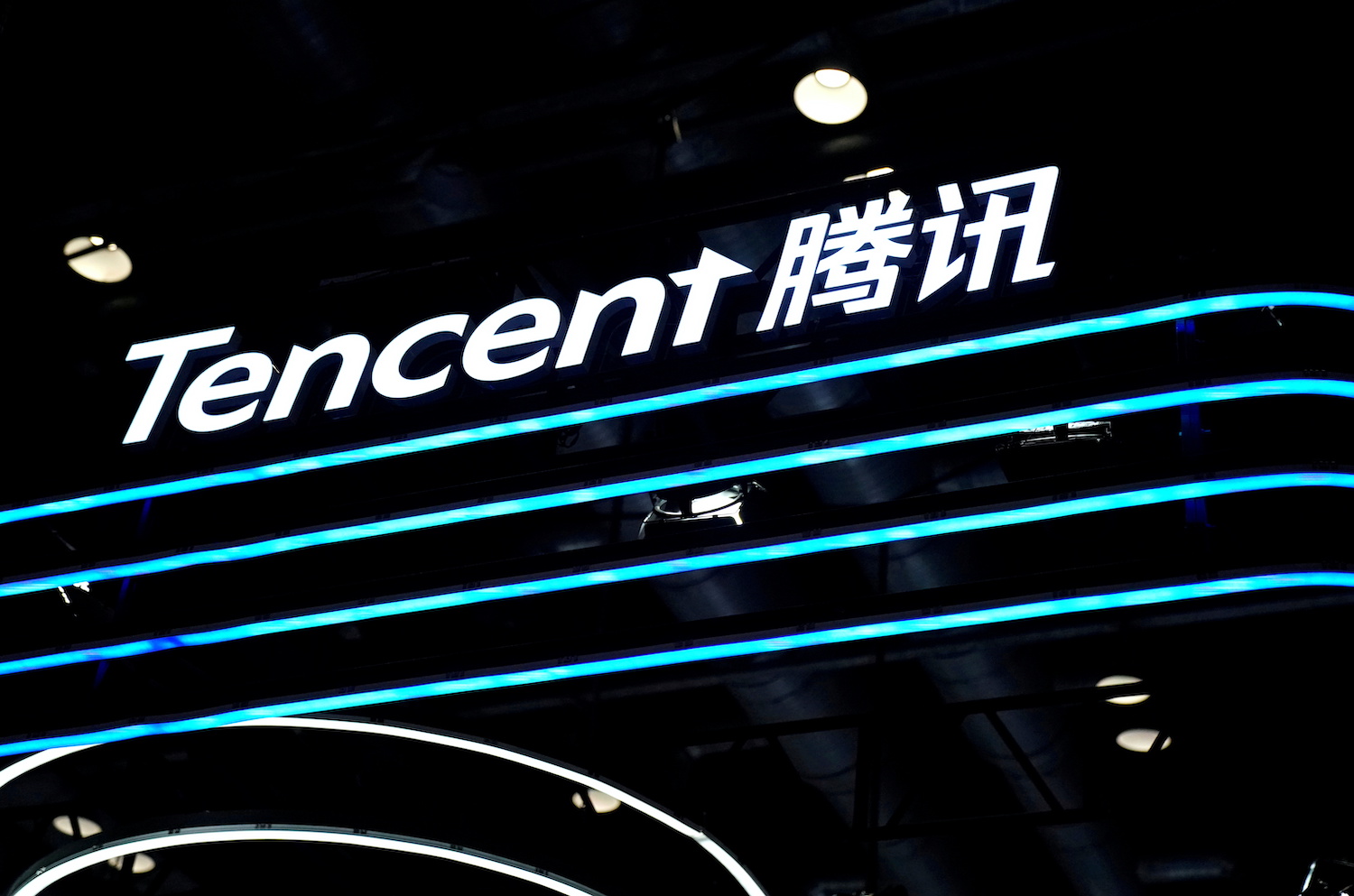Chinese technology giant Tencent has said it will look to buy more domestically-made chips as Washington’s semiconductor export bans pose a risk to its cloud services.
The internet firm acknowledged it had a large stockpile of artificial intelligence (AI) chips from US maker Nvidia to continue development of its “Hunyuan” AI model “for at least a couple more generations”.
But the US chip ban will affect “our ability to resell [use of] these AI chips through our cloud services,” President Martin Lau said on Wednesday. Tencent, through its cloud services, sells computing power to clients.
Also on AF: Report Explains How China Got Round US’s Initial Chip Curbs
“We will have to figure out ways to make the usage of our AI chips more efficient,” Lau said referring to Washingotn’s decision last month to ban the export of more AI chips to China. “And we will also try to look for domestic sources for these training chips.”
Tencent is the second large Chinese technology company to look for domestic alternatives to Nvidia amid tightening US sanctions.
Sources said this month Chinese AI firm Baidu is buying chips worth $62 million from tech giant Huawei to “prepare for a future” where it would no longer have access to Nvidia’s AI chips.
Huawei has developed 910B Ascend AI chips as an alternative to Nvidia’s A100 chip.
Both Baidu and Tencent have been long-time clients of Nvidia, which dominates about 90% of the Chinese AI chip market.
View this post on Instagram
‘Saving Nvidia chips for crucial development’
Tencent has a stock of H800 AI chips that Nvidia developed specifically for China last year in response to earlier export curbs – but the new rules cover those too.
Tencent’s Lau said one way to best utilise the firm’s H800 chips is to reserve them for the most crucial part of AI model development, which is the training of the model.
“We’ll try to see whether we can offload a lot of the inference capability to lower-performance chips so that we can retain the majority of our high-performance AI chips for training purposes,” Lau said.
Expanding US export bans have left Chinese firms with AI ambitions scrambling to cope. Analysts say, however, that an increasing shift to Huawei could threat to Nvidia’s lead in China – its third-largest source of revenue after US and Taiwan.
The US chipmaker plans to market new China-bound AI chips, with an announcement on November 16 at the earliest, industry newsletter SemiAnalysis reported last week.
The chips are equipped with most of Nvidia’s newest features for AI work but have reduced computing power to comply with the new rules, SemiAnalysis said.
But at the same time, Beijing is also pouring billions into its semiconductor industry to fill the gaps crated by Washington’s high-end chip bans.
In September, China announced plans to launch a 300 billion yuan (about $41 billion) fund – its biggest ever – to boost its chips industry. Earlier this month, it emerged that China’s biggest memory chipmaker, YMTC, is also raising billions of dollars to develop new chipmaking equipment and components.
- Reuters, with additional inputs from Vishakha Saxena
Also read:
US Playing a ‘Sad Game’ With Nvidia, Chip Firms: Chinese Media
Nvidia to Stop Some AI Chip Exports to China Immediately
Huawei, US-Sanctioned Firms Win as China Dumps Western Tech
US Chip Export Ban Seen as Big Opportunity for Huawei
Threat of More Chip Curbs Spurs Warnings on China Innovation
Money Alone Can’t Rescue China’s Chip Sector, Experts Say
China’s YMTC in Advanced AI Memory Chip Coup – SCMP
























